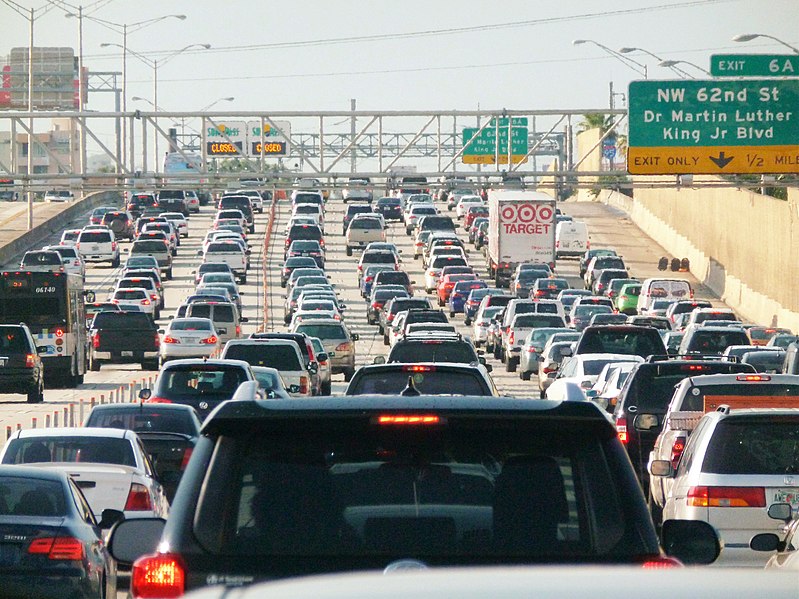A New Era of Urban Transportation
This picture shows a Miami traffic jam on I-95 during rush hour.
October 26, 2021
Cities worldwide are introducing new (and old) methods of transportation to ease the negative effects of climate change. In recent years, people have become more aware of the daunting influence pollutants can have on our environment and are searching for ways to decrease their carbon footprint. Meanwhile, the Paris Climate Agreement and the European Union’s legally binding climate goals are putting pressure on countries and cities worldwide to work towards an eco-friendly future. Because of this, cities are implementing eco-friendly transit options in an innovative manner. Yet the effects of the COVID-19 pandemic on transportation places an additional hardship on these plans.
Many cities are targeting urban transportation to slow climate change and prevent the greenhouse effect’s formidable influence. The current state of urban transportation in cities heavily contributes to high levels of air pollution and noise. According to C40, a global group of 97 affiliated cities working towards addressing climate change, “Cities consume over two-thirds of the world’s energy and account for more than 70% of global CO2 emissions. And with 90% of the world’s urban areas situated on coastlines, cities are at high risk from some of the devastating impacts of climate change, such as rising sea levels and powerful coastal storms.” To combat this, cities are working towards creating more eco-friendly ways of transportation while encouraging people to utilize mass transit options.
When thinking of eco-friendly methods of transportation, many people think of new technology, such as Tesla’s electric cars or high-speed trains. Yet several European countries and cities are taking a page from the past when brainstorming eco-friendly alternatives, where they are bringing back trams. By restoring old tram networks and building new ones, countries such as Portugal are negating the need for less eco-friendly methods of transportation.
Lisbon Mobility Alderman Miguel Gaspar states that “We’re reinforcing a system that was created over 150 years ago to service residents scattered throughout our seven hills, and which now has the added value of being a decarbonized transit option for our city.”
C40 states that investment in mass public transit is a crucial aspect in the effort to cut carbon emissions in cities globally. Yet city transportation budgets worldwide are dwindling due to a loss of business during the COVID-19 pandemic. For instance, last year transportation operations in Spain lost €250 million per month and New York’s Metropolitan Transportation Agency estimates a $6 billion deficit in 2021, according to C40. A deficit is when the sum of money falls short of the required amount. Due to this lack of business, many public transportation systems are reducing their services. These reductions will greatly harm the environment because the neglect of public transportation will increase the use of private cars. C40 reports that this change will lead to an increase in air pollution.












